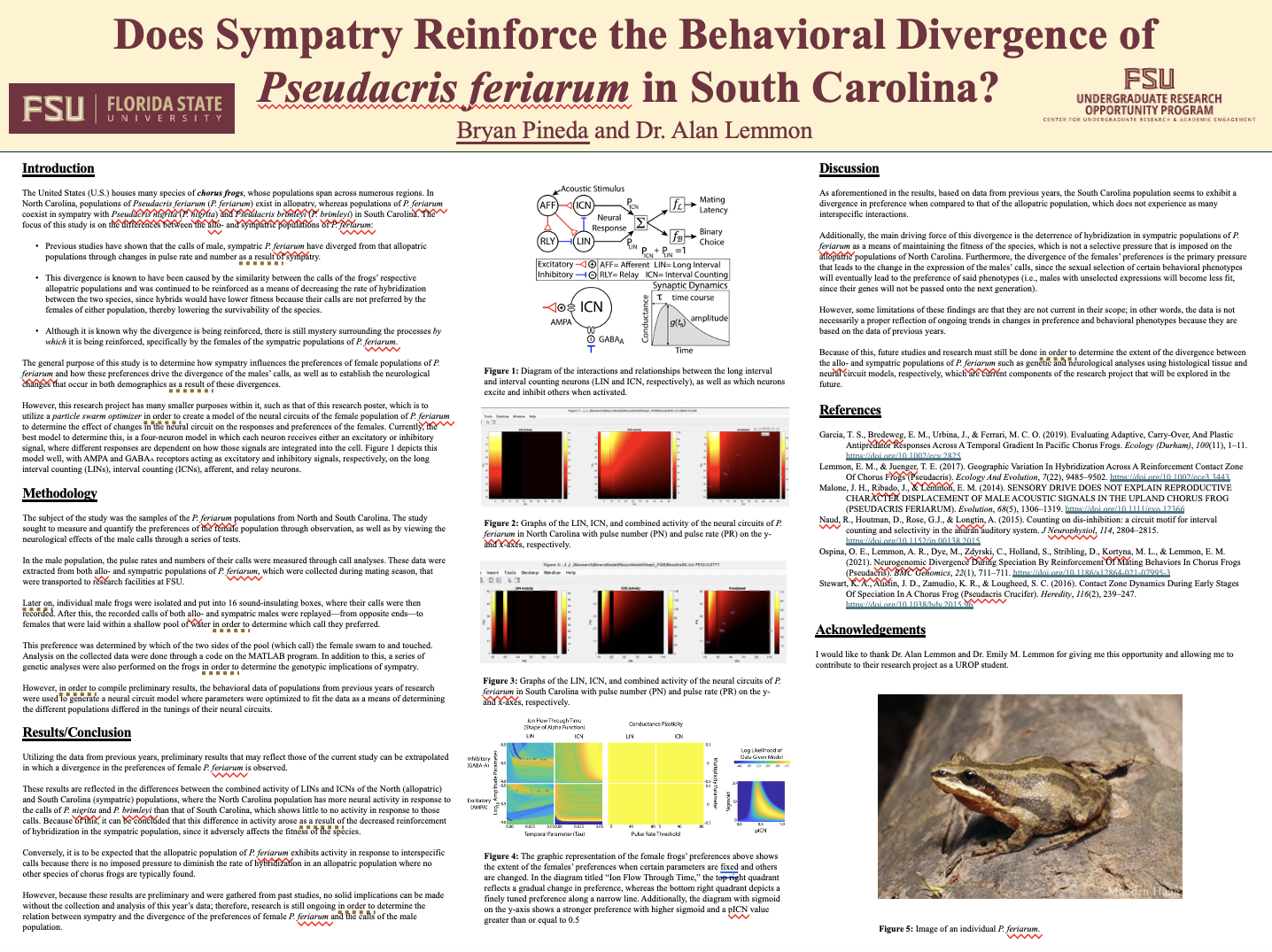Research Symposium
25th annual Undergraduate Research Symposium, April 1, 2025
Bryan Pineda Poster Session 2: 10:45 am - 11:45 am/ Poster #58

BIO
Hi, my name is Bryan Pineda. I am of Cuban descent, and I from Miami, Florida. I plan to pursue a second Bachelor's degree in Communication Science & Disorders in addition to my current Behavioral Neuroscience degree. With these two degrees I hope to then be able to attend medical school and, if not, continue my education through a Master's program in Speech Pathology.
Does Sympatry Reinforce the Behavioral Divergence of Pseudacris feriarum in South Carolina?
Authors: Bryan Pineda, Alan LemmonStudent Major: Behavioral Neuroscience
Mentor: Alan Lemmon
Mentor's Department: Scientific Computing Mentor's College: Arts & Sciences Co-Presenters:
Abstract
Pseudacris feriarum (P. feriarum), Pseudacris nigrita (P. nigrita), and Pseudacris brimleyi (P. brimleyi) are three species of chorus frogs found in the Southeastern United States (North and South Carolina [NC and SC, respectively]). P. feriarum exists in isolation in NC but coexists with the other species in SC. The purpose of this study is to determine how the neural circuits of P. feriarum evolved as a result of sympatry, and how the divergence of the neural circuit and general brain structures contribute to the variance in behavioral phenotypes. By analyzing the neurological changes that arise as a result of this species divergence, it would be possible to determine whether sympatric populations of P. feriarum in SC can be considered an early stage of speciation. Females from each population were presented with pairs of stimuli and those chosen by the females were recorded. The data collected from these calls will then be inputted into a program coded on MATLAB, allowing us to quantify, visualize, and analyze the divergence of the females’ preferences through neural circuit modeling. This would also provide an improved understanding of how degrees of sympatry can affect a species. Once final results are obtained, it can be determined whether the calls and mating preferences of allopatric populations of P. feriarum can be considered an early stage of speciation. Because of this, some potential contributions to the field of evolutionary biology would be further knowledge of local ecologies, as well as a better understanding of how populations undergo speciation.
Keywords: Sympatry, Allopatry, Divergence, Neural Circuit Model

